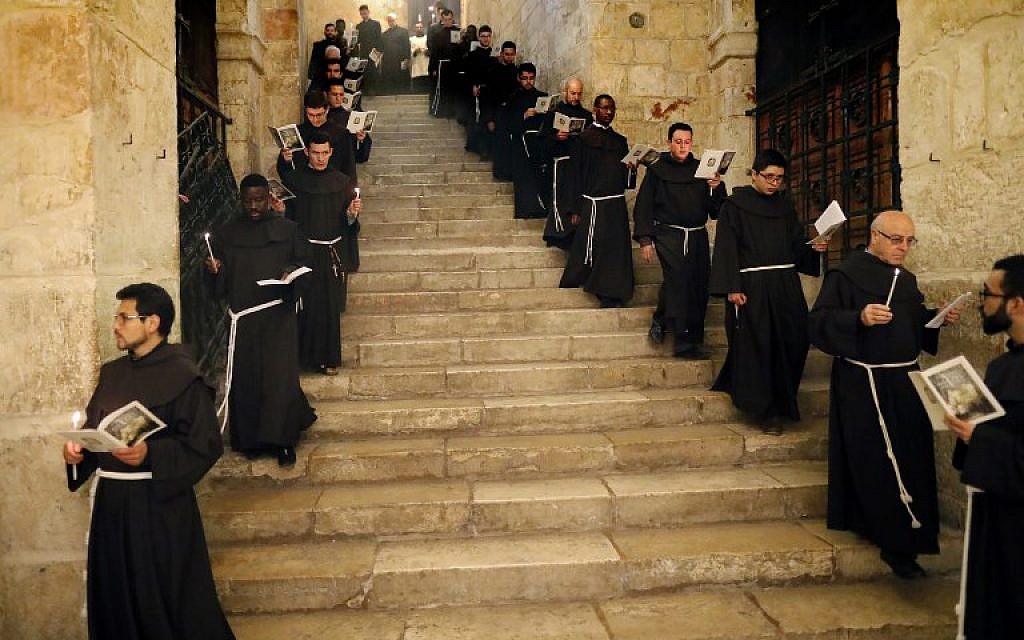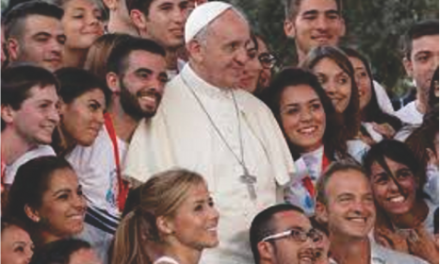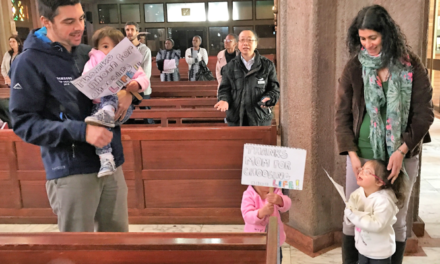December 23. An impression of Franciscan Theology and Spirituality. The number of brothers grew amazingly quickly and soon spread even beyond Italy. Others had to take the lead from St Francis in the different friaries while his own spiritual life deepened and his body suffered and weakened. After the intense and painful experience of receiving the stigmata as well as his blindness he was no longer able to lead them but concentrated mainly on his prayer life. The book The Little Flowers of St Francis contains many accounts and legends of the early years of the Franciscans, of St Francis and many of the most holy of the brothers and some of the weaknesses and temptations. It is not an official biography or theological treatise but a series of tales of St Francis and his earliest disciples in the way in which legends are born. However the “stories” have a certain authority as history. St Francis died in 1226, Francis’ beloved Brother Leo and other sources lived till 1271 and beyond. The foreword to The Little Flowers of St Francis kindly explains, “In the year 1257 had come the great crisis in the Franciscan Order, whereby the Church, frowning darkly on an orgy of religious “revival” which enabled humble, ignorant and sometimes stuttering peasants to talk with God in His Three Persons sicut amicus cum amico, had given a more ecclesiastical temper to the Franciscan “Rule”, and aimed at representing mystical and miracle-working activity among the friars. This debate was conducted bitterly and with some show of force.”
From The Little Flowers of St Francis. HOW BROTHER GILES PRAISED OBEDIENCE MORE THAN PRAYER. As a brother was one day praying in his cell, his superior sent him an obedience to leave his prayer and go out to beg. The friar went forthwith to Brother Giles, and said to him: “Father, I was at prayer, and the guardian had bade me go forth to beg; now it seems to me far better that I should continue praying.” Brother Giles answered: “My son, do you not yet know or understand what prayer is? True prayer is to do the will of our superior; and it is great pride in him who has submitted his neck to the yoke of holy obedience to desire to follow his own will in anything, in order, as he thinks, to perform a work of greater perfection. The perfectly obedient religious is like a horseman mounted on a mettlesome steed, which carries him swiftly and fearlessly on his way; but the disobedient religious, on the contrary, is like a man seated on a meagre, weak, or vicious horse, who is in danger of perishing by the way, or of falling into the hands of his enemies. I tell thee that, though a man were raised to so high a degree of contemplation as to hold converse with angels, yet were he interrupted in that colloquy by the voice of obedience, he ought immediately to leave communing with the angels, and obey the command of his superior.”
Biographer Thomas of Celano recorded the life of Francis and St Bonaventure later, especially, is credited with an important development in Franciscan spirituality of creation while John Duns Scotus developed the theology of the Incarnation and the Meaning of Love.
Many hundreds of biographies of St Francis have been written and studied over the last 800 years but for me, Toni, St Francis Uncensored by Fr Patrick Noonan, a Franciscan missionary who has been active in the field in South Africa for the last 50 turbulent years was able to contribute very real and human insights to the story. Pope Francis, although a Jesuit, has inherited the vision of St Francis and I believe, his encyclical letters Laudato Si’ and most recently Fratelli Tutti express fully what St Francis himself would no doubt have said and done today if he were here, now, in 2020. What is required is a meaningful response. Did St Francis actually have such a major impact in his own day and receive such a strong response? What form did “social media” take in those days? And even today the chances of an important spiritual message going viral and lasting more than 10 seconds are pretty slim.
In today’s world the Covid-19 pandemic has taken some of the focus away from climate change and the dangers to our world, but at societal level both these issues appear to be mainly raised from a very secular perspective with little or no spiritual awareness, no God, no creation. The opening statement by Thomas Berry in, Care for Creation – a Franciscan spirituality of the earth reads, “The human community and the natural world will go into the future as a single sacred community or we will both perish in the desert.” For reflection and sharing: What is your own opinion of this statement about hope for the future? Do you have hope for the future?







Recent Comments